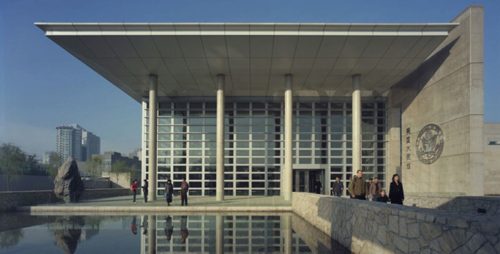North Korea: ‘fire and fury’ replaced with sanctions and words
A summary of the top news in Chinese politics and current affairs for August 14, 2017. Part of the daily The China Project newsletter, a convenient package of China’s business, political, and cultural news delivered to your inbox for free. Subscribe here.

China’s Ministry of Commerce issued an order to ban the import of several commodities from North Korea, including “coal, iron ore, lead concentrates and ore, lead and seafood” effective August 15, Reuters reports. The move, in line with UN sanctions approved on August 5, will significantly ramp up economic pressure on the Hermit Kingdom, yet the Washington Post notes that experts consider this by itself to be “unlikely to be enough to persuade Pyongyang to abandon its nuclear program.”
Meanwhile, both the U.S. and China updated their diplomatic messaging on North Korea:
- Two of the steadier voices from a chaotic White House, those of Defense Secretary Jim Mattis and Secretary of State Rex Tillerson, asserted themselves with a Wall Street Journal op-ed (paywall) that emphasized a “peaceful pressure campaign” to resolve the conflict.
- Former U.S. Secretary of State Henry Kissinger also penned a Wall Street Journal op-ed (paywall) that advocated America move beyond using “China to press North Korea as a kind of subcontractor to achieve American objectives,” and urged that a diplomatic “understanding with China is needed for maximum pressure and workable guarantees.”
- The New York Times noted (paywall) that as South Korea’s president and America’s top military general, chairman of the Joint Chiefs of Staff Gen. Joseph F. Dunford Jr., met and also agreed on the need to focus on “diplomatic and economic pressure,” Trump’s alarming rhetoric of “fire and fury” appears to have fully fallen out of favor in less than a week.
- China, on the other hand, has appointed Assistant Foreign Minister Kong Xuanyou 孔铉佑 to be a new special envoy for North Korea, replacing Wu Dawei 武大伟, who had reached retirement age, Reuters reports. He will now have the “unenviable task of reviving six-party talks aimed at reining in Pyongyang’s nuclear ambitions,” the South China Morning Post says in its profile of the new, unassuming diplomat.
—Lucas Niewenhuis
- Chinese nuclear power in Africa
Chinese institution completes converting Ghana’s nuclear reactor into an LEU / Xinhua - India
China and India on brink of armed conflict as hopes of resolution to border dispute fade / SCMP
Opinion: In a confrontation over Doklam, China will likely be the eventual loser / The Wire
Opinion: A Sino-Indian clash could end the Asian century / Straits Times - Human rights
Eye-catching China activist Super Vulgar Butcher ‘admits wrongdoing’ / Reuters
A new torture in China / CPI Analysis - Infrastructure
Shanghai’s subway looks to New York, but not for everything / NYT (paywall)
Full steam ahead at China’s Great Wall for the world’s deepest and largest high-speed rail station / SCMP - Dalai Lama
Dalai Lama cancels Botswana visit ‘due to exhaustion’ / Reuters - Environment
China overall water quality improves in H1, but some regions worsen / Reuters - Poverty alleviation
China Focus: China fights for final victory over poverty / Xinhua






